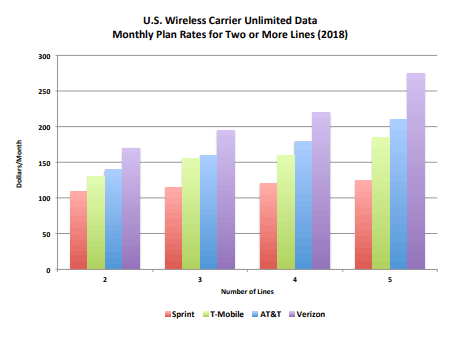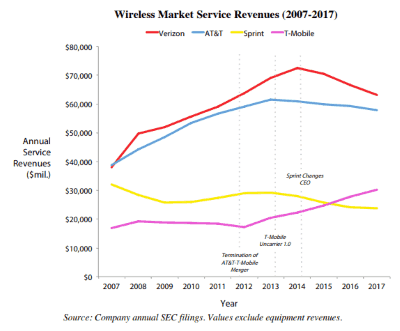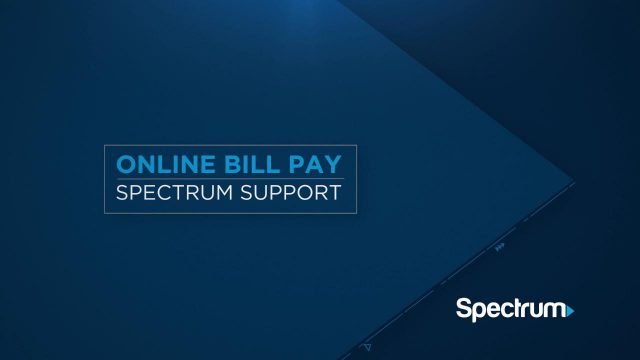
Teachout
It may not be a surprise to our regular readers that our biggest audiences, as measured by Google’s analytics, are concentrated in New York City, Albany, and the upstate cities of Rochester-Buffalo-Syracuse — all in New York, closely followed by Washington, D.C., and Southern California. Stop the Cap! is headquartered in Rochester, N.Y., but the broadband issues affecting upstate New York are identical almost everywhere, because companies like Charter and Comcast, AT&T and Verizon dominate in many states.
For the benefit of our New York readers, we would like to take a moment to endorse one candidate for our state’s next attorney general. Who wins this race will have a ripple effect on almost all of our readers, because New York’s long history providing oversight of critical public and private utilities impacts not only on the people living here, but often sets precedents that deliver real benefits to consumers across all 50 states.
New York needs a strong and active attorney general, especially at a time when a pervasive culture of corruption in Washington, D.C. and Albany continues to fester. An attorney general can provide independent oversight and investigate behavior the current Congress and state legislature refuse to do for partisan reasons. Corruption, corporate influence, and pay-for-play politics is a bipartisan problem.
Our last attorney general, Eric Schneiderman, horrified us after revelations he allegedly physically assaulted some of the women he dated while also claiming to be a strong ally for the #MeToo movement. Many of his public policy positions were admirable, but his irresponsible, reckless, and unforgivable behavior reminded New Yorkers how flawed many of our state’s elected officials are. Schneiderman was just the latest to resign over a decade of resignations including a former governor, legislative leaders, aides, and elected officials from Buffalo to Long Island.
What New York needs now is a new generation of not-well-connected politicians that have no interest in joining an insider network of good ‘ole boys (and girls) who cynically cut deals and look the other way for political expediency. We need leaders that pledge loyalty, not to the party they belong to, but to the people they were elected to serve. That means an end to “everybody does it” campaign trolling for corporate cash, friendly (usually secretive) meet and greets with Wall Street, and wink and nod pledges of “understanding” by those taking frequent trips through the revolving door of public office and industry. New York has seen the impact of these practices in major scandals up and down the state involving deep pocketed construction companies, Wall Street banks, wealthy donors, and various well-connected business interests looking for contracts or tax breaks.
This time, there is a candidate that will deliver exactly what New York needs in an attorney general. Zephyr Teachout couldn’t be more independent if she tried. She wrote a book on political corruption, ran against New York’s current governor Andrew Cuomo, has been involved in a number of public policy groups advocating campaign finance reform, sunshine laws, protection from voter suppression, and providing stronger oversight of corporate interests, including a willingness to break up corporate monopolies.
On telecommunications issues, she couldn’t be a stronger candidate:
- She opposed Charter Communications acquisition of Time Warner Cable.
- She is tired of unopposed, competition-killing mergers like AT&T and Time Warner (Entertainment), Inc.
- She favors net neutrality.
- She supports public/municipal broadband, and for spending public money to resolve rural broadband problems.
- She will continue a lawsuit against Charter Communications for failing to meet its obligations to customers.
- She will fight the pervasive and corrosive impact of corporate political contributions and their distortion of public policy.
New York voters have several options to choose from for our next attorney general. Among the Democrats, New York City Public Advocate Letitia James has taken on Charter/Spectrum downstate and railed against Verizon’s broken FiOS commitments in New York City. While she now seems intent on carefully investigating Charter’s performance, that comes a little late. New York City has faced a number of problems with telecom companies breaking their commitments, many while James was in office. Those companies do not seem to be afraid of her. Her campaign platform seems focused on downstate issues that are likely not going to attract significant support upstate.

New York’s primary day is Sept. 13.
Leecia Eve is the establishment favorite for attorney general. Her website says little about her positions, but her resume speaks uncomfortable volumes about her close ties to the Clintons and the D.C. Democrats that enabled the telecom industry’s era of consolidation while doing almost nothing to stop monopoly abuse. Even worse, she is a veteran of D.C.’s revolving door, moving between government and private business in an all-too-familiar game that rarely turns out well for constituents. The deal breaker for us is Eve’s current job — a lobbyist for Verizon New York, New Jersey, and Connecticut. She actually calls that experience a plus. Not for us. There are far better choices.
Sean Patrick Maloney is the first openly gay member of Congress elected from New York. Previously, he was a partner at two global law firms and ran a high-tech business. He is dubbed ‘the upstate candidate’ because he currently represents the 18th district, which includes all of Orange County and Putnam County, as well as parts of southern Dutchess County and northeastern Westchester County. His district includes Poughkeepsie. He is considered to the right of the other candidates, likely reflecting the more conservative upstate views of his district, where Donald Trump won over Hillary Clinton by just under two points in the 2016 presidential election.
Maloney’s campaign positions are thin, mostly focused on blocking Trump Administration policies that impact New York, particularly those on immigration. He also claims he will fight to stop corruption in Albany, but has said little else.
He is, by far, the most strident candidate in the race, reflecting a ‘tough talk’ style, sometimes laced with profanity, that usually doesn’t hurt candidates in New York politics. His message: he won’t take any crap from the president or his supporters.
“I don’t give a f**k what the Trump fans say. That’s not what this is about,” Maloney said in response to a question about Trump supporters’ feelings about his sexual orientation and family. “This is about speaking from the heart. About a family I’ve built for 25 years that’s in the crosshairs of these assholes. And doing something about it.”
He’s also upset about the less-than-robust response from fellow Democrats to rhetorical bomb-throwers on the right during the last two years of Donald Trump’s presidency.
“It feels like the people who are fueled by hate, demagoguery and anger have their sh*t together, and those of us who want to talk about love and hope and inclusion have been hiding in the shadows,” he said. “And it’s time to get out of the shadows and at least defend our ground. But I’d rather even get on offense.”
Maloney’s strong beliefs and style seem better suited to Congress than the state attorney general’s office. Although no stranger to grandstanding, the AG’s office usually spends most of its time reaching private settlements with offenders or taking them to court.
The Republicans have endorsed Keith Wofford for attorney general. His platform is wrapped around the premise the attorney general’s office in New York has been too hostile to companies in New York, essentially extorting settlements and deal conditions that hurt corporate interests while spending too much time on oversight and compliance and not enough time on attracting new businesses and jobs. That’s a philosophy former Oklahoma AG Scott Pruitt (who served as the president’s EPA administrator until his resignation in July) would strongly endorse.
“The business environment here is horrible— and the attorney general has been a big part of that problem,” Wofford writes. “Recent AGs have twisted New York’s laws, strong-armed companies to settle flimsy lawsuits, and used New York companies as a piggy bank. This has driven away jobs and investment. And the cost falls upon all New Yorkers, who are denied jobs and opportunity — because businesses refuse to invest here, or simply leave.”
After two years of the Trump Administration’s scandalous performance allowing corporate foxes to patrol the hen houses, Wofford’s double-down on Trump’s policies is woefully out-of-place.
For all these reasons, Stop the Cap! strongly endorses Zephyr Teachout for New York’s next attorney general. She is right on our issues and will instinctively fight to stop consumer abuse, often before it starts. She will be immune to the influences of corporate cash and the kinds of cozy Albany-insider politics that have allowed corruption to fester for too long.
 A complaint from AT&T that the city of Lincoln, Neb. charged “high fees” that have “delayed its residents the benefits of AT&T’s small cell deployments,” was false and misleading, city officials tell the Federal Communications Commission.
A complaint from AT&T that the city of Lincoln, Neb. charged “high fees” that have “delayed its residents the benefits of AT&T’s small cell deployments,” was false and misleading, city officials tell the Federal Communications Commission. “A review of our records fails to reveal any permit applications filed by AT&T for such as deployment,” Lincoln officials wrote. “That means that AT&T either deployed without permission and unknown to the city, or AT&T provided misleading statements to the Commission. Lincoln has researched our rates, submitted them to national companies for evaluation, and as a result has signed small cell agreements with three different companies.”
“A review of our records fails to reveal any permit applications filed by AT&T for such as deployment,” Lincoln officials wrote. “That means that AT&T either deployed without permission and unknown to the city, or AT&T provided misleading statements to the Commission. Lincoln has researched our rates, submitted them to national companies for evaluation, and as a result has signed small cell agreements with three different companies.”

 Subscribe
Subscribe “Devastating.”
“Devastating.” The comments reflected consumer views that mergers in the telecom industry reduce choice and raise prices.
The comments reflected consumer views that mergers in the telecom industry reduce choice and raise prices. Rivals, especially AT&T and Verizon, have remained silent about the merger. That is not surprising, considering T-Mobile and Sprint have forced the two larger providers to match innovative service plans, bring back unlimited data, and reduce prices. A combined T-Mobile and Sprint would likely reduce competitive pressure and allow T-Mobile to comfortably charge nearly identical prices that AT&T and Verizon charge their customers.
Rivals, especially AT&T and Verizon, have remained silent about the merger. That is not surprising, considering T-Mobile and Sprint have forced the two larger providers to match innovative service plans, bring back unlimited data, and reduce prices. A combined T-Mobile and Sprint would likely reduce competitive pressure and allow T-Mobile to comfortably charge nearly identical prices that AT&T and Verizon charge their customers. Telecom companies in four states will receive almost 50% of the $1.488 billion the FCC has set aside in support to expand rural broadband service in unserved areas of 45 states.
Telecom companies in four states will receive almost 50% of the $1.488 billion the FCC has set aside in support to expand rural broadband service in unserved areas of 45 states. Providers must build out to 40 percent of the assigned homes and businesses in a state within three years and increase by 20 percent in each subsequent year, until complete buildout is reached at the end of the sixth year.
Providers must build out to 40 percent of the assigned homes and businesses in a state within three years and increase by 20 percent in each subsequent year, until complete buildout is reached at the end of the sixth year. Spectrum customers in western New York are reporting overdraft charges and missing funds from their checking accounts that trace back to double-charging by Charter Communications for cable service.
Spectrum customers in western New York are reporting overdraft charges and missing funds from their checking accounts that trace back to double-charging by Charter Communications for cable service. This can become a problem for customers who keep a low balance in their checking account and expect those funds to be immediately available to pay bills or make a cash withdrawal. Because of the extended hold, customers could unintentionally overdraw their checking account, leading to overdraft fees or an automatic draw from a line of credit, if one is attached to your checking account. La Voie had enough money in her account to avoid an overdraft, but she was concerned about those who don’t.
This can become a problem for customers who keep a low balance in their checking account and expect those funds to be immediately available to pay bills or make a cash withdrawal. Because of the extended hold, customers could unintentionally overdraw their checking account, leading to overdraft fees or an automatic draw from a line of credit, if one is attached to your checking account. La Voie had enough money in her account to avoid an overdraft, but she was concerned about those who don’t.

